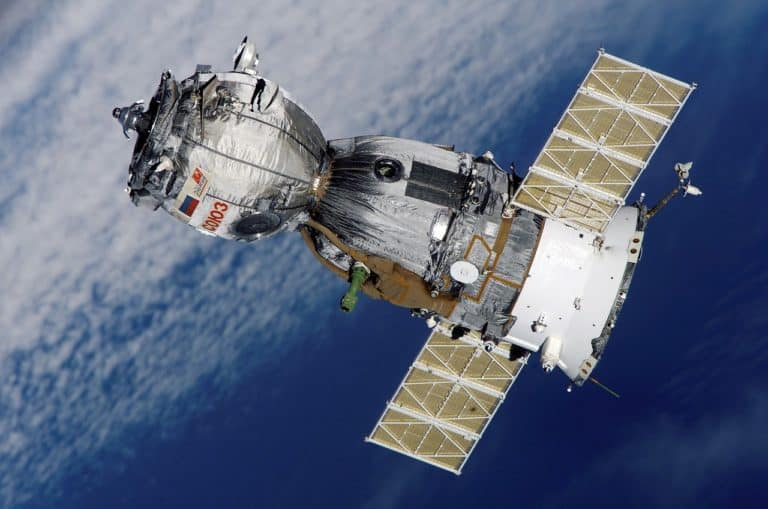Sahara’s potential to light-up Europe amidst Africa’s darkness
For many years, North Africa has played a vital role in supplying Europe with fossil fuels to meet its energy needs.
However, as the world grapples with the urgent task of combating climate change, European energy companies are now shifting their focus towards a more sustainable power source from the sun-rich deserts of the Sahara.
This shift presents an exciting opportunity to not only reduce Europe’s dependence on fossil fuels but also provide much-needed electricity to millions of households and industries.
The ambitious plan involves the establishment of solar energy farms in North Africa and using undersea cables to transport clean electricity to Europe.
Although this endeavour holds great potential for Europe, it raises concerns about the unequal access to energy within the region, leaving much of West Africa still, without sufficient power of their own.
The green energy export project: A vision for a sustainable Europe
An undersea cable project, spanning 1,373km which is set to transfer 3,000 MW of renewable energy from North Africa to the European grid is already underway.
This ambitious project has gained the backing of several European nations such as Greece, Italy, Portugal, Spain, and the United Kingdom.
Their aim is to decrease carbon emissions and shift towards cleaner energy sources by supplying homes and industries with sustainable power.
The Copelouzos Group, a major supporter of the initiative, has held meetings with Egyptian leaders to hasten its implementation. Ioannis Karydas, the CEO of the company, believes that by tapping into solar energy resources in Egypt and other African nations, Europe can gradually reduce its reliance on Russia’s fossil fuels and natural gas.
The interconnected grids in Bulgaria, Greece, and Italy are poised to benefit from the electricity generated by North Africa’s solar energy facilities.
Xlinks Morocco-UK Power Project aims to transmit clean electricity from North Africa to southern England through a 3,800km cable thus demonstrating their ambitious plans for utilising renewable energy from this region.
Unlocking the sahara’s solar potential
The Sahara Desert is no doubt one of the regions on the planet that receives the most amount of sunshine and thus harbouring the potential for vast solar energy harvesting.
A study conducted by the European energy institute suggests that harnessing only 0.3 percent of this solar potential could fulfil Europe’s entire electricity requirements.
This remarkable possibility offers the prospect of an uninterrupted and affordable energy supply to Europe, thereby decreasing greenhouse gas emissions and leading to a more environmentally friendly future.
Harnessing green energy from the Sahara is predicted to be more economically viable than current energy prices.
As technology progresses and economies of scale are achieved, the production costs of solar and wind power are expected to decrease even further, making these sources increasingly competitive in the market.
By embracing renewable energy such as that derived from solar, Europe would continue to drive economic growth, generate employment opportunities, and strengthen its position as a worldwide frontrunner in sustainable development.
The African energy paradox: Imbalance in energy access
The renewable energy export project offers a promising prospect for Europe, but it also sheds light on the energy inequality within Africa.
The majority of West Africa still struggles to obtain reliable electricity. The International Energy Agency (IEA) reports that over half of Sub-Saharan Africa’s population lacks access to power.
This disparity in energy availability does raise worries about the potential for the solar projects embarked on by European countries to worsen existing inequalities within the African continent.
It would also be fair to acknowledge that Europe may not bear the sole responsibility for the ongoing lack of consistent electricity supply in many African countries, as well as their inability to harness solar power.
Various sources, both within and outside Africa, have pointed out that poverty is a significant issue across the continent.
Factors such as poor governance and insufficient efforts towards developing solar energy initiatives are definitely still ongoing challenges on the continent.
Addressing the energy divide: Inclusive energy policies
In order to tap into the solar potential of the Sahara while ensuring fair energy access for everyone, African nations need to adopt inclusive and sustainable energy policies.
Governments throughout the continent must prioritise investments in renewable energy infrastructure and establish a conducive environment for private sector involvement in clean energy initiatives.
International collaboration for sustainable development
Bridging the energy gap does require a joint effort between African and European stakeholders.
The global community must back and invest in sustainable energy initiatives in Africa, with a specific emphasis on cultivating local expertise and transferring technology.
By fostering collaborations that facilitate the exchange of knowledge, skill enhancement, and sharing of technological advancements, West African nations can expedite their shift towards renewable energy sources.
This will enable them to tap into their own potential for driving economic progress and enhancing quality of life.
In conclusion, the ambitious plan to tap into the solar potential of the Sahara Desert and provide electricity for Europe presents a significant opportunity for the region to transition towards renewable energy sources and reduce its carbon emissions.
The installation of underwater cables to transmit clean power is a commendable step towards a greener future for Europe.
However, this project also highlights the energy disparity within Africa, leaving much of West Africa without access to electricity.
To address this imbalance, African nations, and international partners need to collaborate on inclusive energy policies, investment, and technology transfer.
Only through collective efforts can we fully unlock the potential of renewable energy, benefiting both Europe and Africa in their pursuit of sustainable development.






